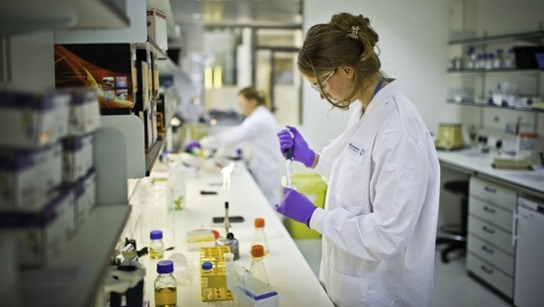Researchers from the Catholic University of Louvain (UCL) and the University of Namur (UNamur) have discovered why a drug to treat alcohol dependence could also affect cancer, UCL announced on Saturday. Their work was published in Scientific Reports. New anti-cancer medicine could therefore emerge.
Several studies had already demonstrated the anti-cancer potential of disulfiram, a molecule used in the treatment against alcoholism. Research teams with Professors Raphael Frederick (UCL Drug Research Institute), Olivier Feron (UCL Experimental and Clinical Research Institute) and Johan Wouters (UNamur), have discovered the mechanism that explains "why".
Cells need proteins to multiply. Protein molecules are present in all living cells and composed of a sequence of their own amino acids. To proliferate, cancer cells require the presence of one of these, serine.
Research has focused on the phosphoglycerate dehydrogenase (PHGDH), an enzyme — a protein that allows a specific chemical reaction — involved in the production of serine and thus indirectly in the proliferation of cancer cells. It appears that disulfiram blocks more effectively PHGDH and, therefore, amino acid production. Tumour cells then cease to multiply.
The drug also has another antitumour effect, discovered in 2017. It needs copper, however, to be activated. Once activated, disulfiram inhibits the protein degradation process, required by the tumour cells, and prevents, therefore, their proliferation.
The molecule is currently the subject of several clinical studies that should accelerate the understanding of the mechanism on humans. With the aim of creating new medicine specifically dedicated to cancer treatment.
The Brussels Times

